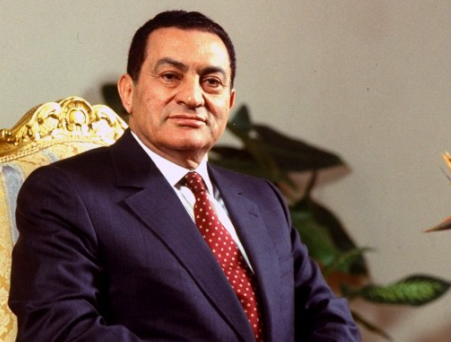Last Saturday, August 6, 2011, former president, Olusegun Obasanjo, wrote a backpage piece titled “The Shame of Africa and the Arab world”, for SATURDAY MIRROR. He shrugged his shoulders “in extreme disgust”, on seeing former President Hosni Mubarak of Egypt “in a cage responding to the charges brought against him” inside a court. While not opposed to his giving account for his deeds, Obasanjo advocated nevertheless, “that the age-old African tradition and culture of humanity, humanness, respect for age and maintenance of dignity and honour for those who had attained the status of leadership should be maintained in all situations”.
He accepted that the law should not respect individuals, but argued that “humanness and humanity” should be considered in treating “a man who had run the affairs of a country for almost thirty years”. Obasanjo loudly protested Mubarak’s treatment: “As a former colleague who knows a bit about what Mubarak had done for his country, his sub-region, and the Arab world, and indeed for the world, he has been atrociously treated”. The protestation became even louder, with Obasanjo literally shouting himself hoarse, that “As an African steeped in African tradition and culture, I feel strongly that Mubarak must not have been treated publicly and disgracefully the way he had been”.
Obasanjo had his say but I think it is appropriate to interrogate his views. That Mubarak was in a cage should not surprise Obasanjo, who knew a thing or two about Mubarak, and by extension, Egypt. Under Mubarak’s dictatorship, waves and waves of opponents were always brought to court and displayed in cages. It seemed the ‘natural’ standard in Egyptian court, so the old dictator should not be an exception to a practice he perfected against opponents, during his dictatorship. The next question is to ask our own despot if there are eternal and unchanging “African traditions”, applicable in all conditions? In that case General Obasanjo should tell us if it is “African tradition” to oppress and humiliate the people as Mubarak did for thirty years.
Why must Africans respect the dignity of despots and dictators who systematically oppressed the people? If brought home to Nigeria, does Obasanjo assume that he is entitled to “humanness and humanity”, which his leadership denied Nigerians, especially between 1999 and 2007? Clearly Obasanjo is scared of a similar comeuppance from the Nigerian people if ever there was a revolt in this country! Didn’t he state, quite frankly, a few weeks ago, that he would be direct a victim, of a revolution in Nigeria? Obasanjo is an object of near-universal loathing in contemporary Nigeria, because he wasted a historic opportunity as president, to provide leadership for the change and development which Nigeria desired. In complaining about the treatment meted out to his old friend and fellow despot, the Nigerian ex-president is merely expressing fear for a frighteningly possible future, given the ferment and crisis holding Nigeria in a bear-hug today! Substitute Obasanjo for Mubarak, and Nigeria with Egypt, and you get the source of protestations about “humanness and humanity” and the empty and meaningless appeal to “age-old African tradition and culture”, by General Obasanjo! Mubarak is getting his just desert: his day in court!
That is more than what the hundreds killed on the streets of Cairo, Alexandra, Aswan, Sinai and other cities were given during the revolt against dictatorship. I wonder what “age-old African tradition and culture” says about the lives of the mass of the African peoples and their right to decency and respect from their leaders. And this is the crux of the matter; African leaders have for long ruled with utter contempt for their people, inflicting dictatorships; imposing ruinous economic projects at the behest of imperialist institutions or as in the case of Mubarak, turning Egypt, one of Africa’s most important countries and the largest Arab nation, into an accomplice of Zionist oppression of the Palestinian people and an outpost of the interests of imperialism. In the long run, the people became fed up; wanted change; fought for it, and they ended the dictatorship! Unfortunately, General Obasanjo’s lamentation missed these facts!


